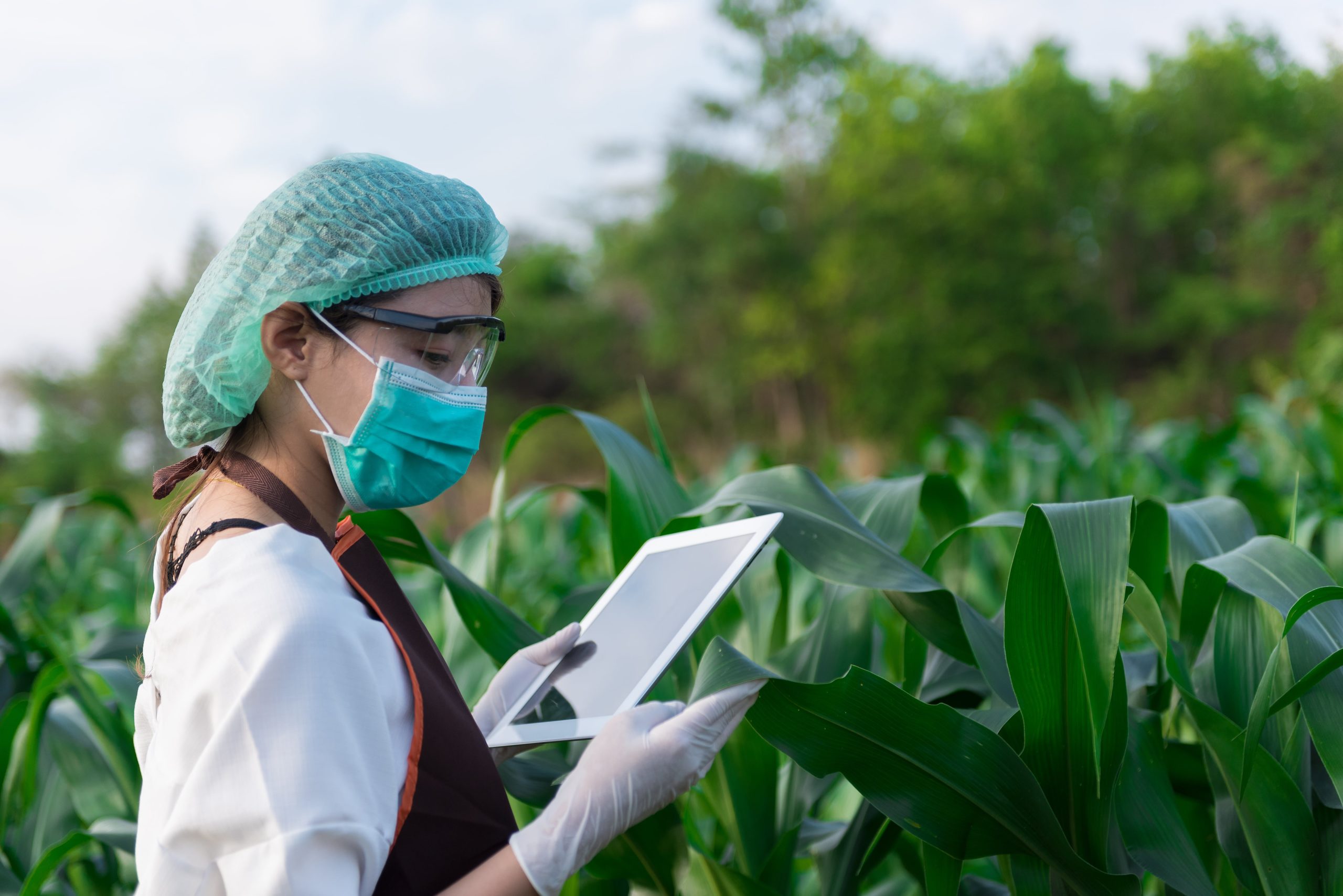There are few modern scientific debates as controversial as the one regarding genetically modified crops. In the 20 years since the process was first introduced, arguments have raged over the extent to which GM crops should be allowed to enter food chains. In some countries, such as the USA and Brazil, GM crops have been largely accepted and are now widely cultivated. In other countries such as Switzerland and Australia they are banned altogether. The UK has always stopped short of an outright ban, but has maintained a strongly suspicious attitude towards GMOs. None are currently grown here and imports are regulated by a strict set of EU laws.
But who is right? Are GM crops our best hope for feeding a growing population, or are they a dangerous example of scientists ‘playing God’ at the expense of public health? Recent studies increasingly confirm the safety of GMOs, and public attitudes seems to be softening. After 20 years, we might just be ready to give GM crops another chance.
What are GM crops?
Genetically modified crops are crops that have had certain traits introduced through methods other than simply breeding desirable characteristics over several generations. The most common method is a ‘gene gun’, also known as a biolistic particle delivery system. This device ‘shoots’ a metal particle coated with the desired DNA into the plant cell. The metal then separates from the DNA, allowing the DNA to be integrated into the plant cell’s nucleus. Other methods include microinjection (injecting the desired DNA directly into the plant cell) and, in recent years, CRISPR gene-editing.
GM cultivation has expanded rapidly since the mid 1990s. In 1996 just 1.7 million hectares of farmland were given over to GM crops. By 2016 this had increased to 185.1 million hectares. The vast majority of GM crops are modified to include one or both of two particular traits: resistance to herbicide and resistance to insects. In 2016, 53% of GM crops were herbicide-resistant and a further 14% were insect-resistant.
The latest research
Recent scientific findings largely support the idea that GM crops are safe for both the environment and for human consumption. Last month Nature published one of the most comprehensive scientific studies ever made into the effects of GM crops. The study compiled the results of over 6,000 published articles from the last 21 years to produce a wealth of data on the effects of GM crops. It found that the average GM crop that is resistant to both pests and weeds will deliver a 25% higher yield than its non GM counterpart. This means that widespread adoption of GM crops would mean the world would require less farmland to produce food, which would significantly reduce deforestation and greenhouse gas emissions.
Contrary to popular belief, GM crops were also found to be more nutritious as they contain a third less mycotoxins, poisonous chemicals that infect crops as a result of insect attacks. Finally, GM crops were found to have almost no effect on the biodiversity of the areas in which they are grown. Across all the studies that were analysed, the only disruption found was to a single species of parasitic wasp.
Will the UK ever come around?
It is very hard to gauge the public mood in the UK regarding GM crops. A 2014 YouGov survey showed that scepticism is still our primary attitude, with 40% of the public viewing GM crops negatively, and only 22% seeing them in a positive light. Only 6% of respondents said that their views were more positive than they had been a year earlier, suggesting that people are fairly steadfast in their opposition.
However, a 2016 survey painted a different picture. This time, two thirds of the public showed support for GM crops and only 22% expressed outright opposition, although the survey’s sponsorship by Bayer Crop Science means that it should perhaps be taken with a pinch of salt.
Things are complicated further by Brexit as it is unclear how many, if any, of the current EU restrictions on GM food will apply to the UK in the near future. This has produced panic amongst some people as tabloids have reported that our supermarket shelves will be ‘flooded’ with GM crops. Although this is probably an overstatement (Michael Gove has been keen to play down these fears), an increased reliance on trade with the USA after Brexit would probably increase our exposure to GM foods.
Our scepticism of GM crops is understandable. It is right to be suspicious of our food supply being tampered with and to worry about unforeseen consequences further down the line. However, we should also be willing to change our minds in light of scientific evidence which, at present, seems to be telling us that it’s time to give GM crops another chance.
A helping hand for innovators
Whether or not the UK ever truly embraces GM crops, the technology has certainly been a game changer on a global scale. Progress like this doesn’t always happen gradually; sometimes it takes a leap of faith from a certain person or organisation. This can be a frightening prospect. Even if you believe that you have a world-changing idea, the risk involved in bringing it to fruition can be highly intimidating.
Luckily, there is support available. Innovate UK provide grants to UK businesses with truly original ideas. Some grants are for very specific projects, whilst others are for more generalised innovation. The organisation is currently running its latest Open Sector competition which allows UK businesses to apply for up to £19 million for any project that demonstrates “a clear game-changing and/or disruptive innovative idea.” The open nature of this grant means that competition will be fierce. That’s where we can help. We have experts on hand who boast decades of experience with Innovate UK applications and can guide you through the whole process, giving you the best possible chance of success.
Get in touch today and let’s get to work!






